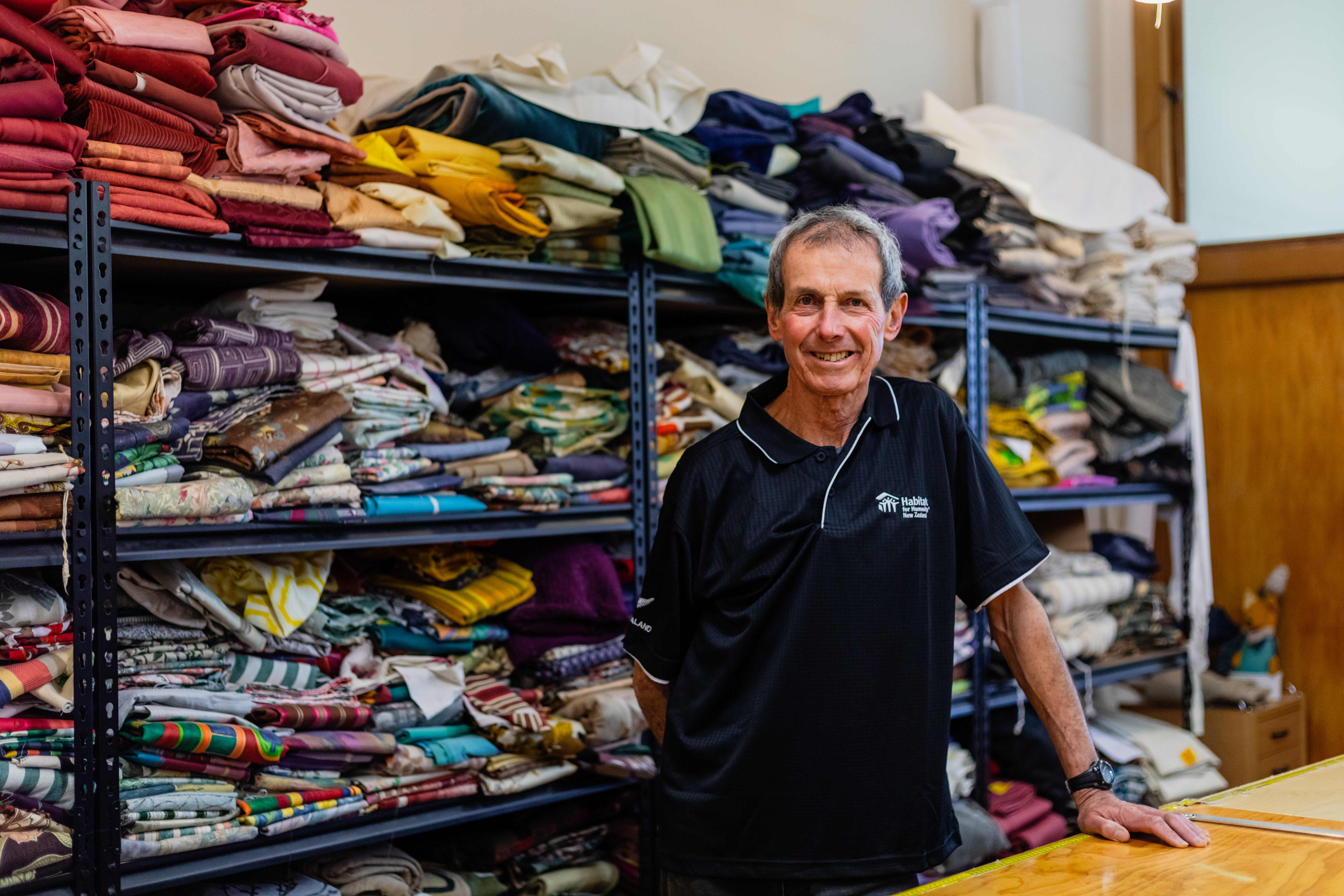Habitat for Humanity’s Richard Andersen helps make homes warmer.
Curtains are expensive and for low-income families they can be downright unaffordable. Curtain installer Richard Andersen, who works for Habitat for Humanity, sees all sorts of stop-gap solutions when he goes into homes.
“People put up whatever they have to block the heat going out through the glass,” he says. “Some young children’s bedrooms that we go into, the only thing that's stopping the warm air escaping is a peg holding up a blanket or some little darts holding up bits of material over the glass.”
It’s always a pleasure for Richard to put up curtain rails and lined curtains in homes that need them, knowing the difference that will make. “I love helping people, so that's really fulfilling.”
AMI is proud to partner with Habitat for Humanity, to help it achieve its goal of transforming the lives of 75,000 Kiwis over the next three years through warm, dry housing.
“I come in to work each day looking forward to the day,” says Richard. “I pick up my run sheet, I grab the curtains and the curtain rails that I need, and then off I go, out into my day.”
Richard targets the key parts of the house, bedrooms and lounges, installing fully lined curtains that reach from the tops of the windows all the way to the floor to prevent warm air escaping.
“My aim is to take houses that are cold and damp and make them warm and dry. So while we're in the house, we'll be chatting to the family about ways to improve their heating via natural sunlight, when to open and close curtains and stuff like that which will keep the house warmer for longer.”
Richard is especially interested in making homes safer for vulnerable children. “Warming up the house will eliminate some of the damp and dust mites which will mean that kids can go back to school and parents don't need to be home watching their kids,” he explains. “So that's a win-win and that's the main reason why I like doing what I'm doing.”
Richard draws on his background in building and property maintenance. Before Habitat for Humanity he worked for a motel and conference centre.
“I wanted to work here because it's a great way of helping people to lift from a place where they can't see the way forward to giving someone a bit of hope, a way forward and a way out of their sickness and a better life.”


